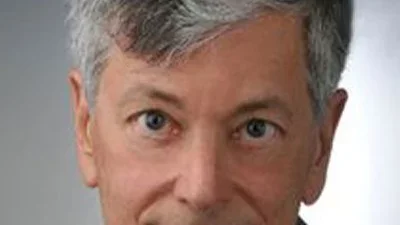New Sleep Research Into Primitive Sleep Wake Patterns
Sleep Myths Put to Bed by UCLA-Led Study of Indigenous Groups

Health News: Dr. Jerome Siegel, Director of the Center of Sleep Research at UCLA, Dispels Common Myths About Sleep
Mistaken beliefs about sleep abound, and they go beyond the Tooth Fairy and Sandman. Ideas about napping, burning the midnight oil and how much sleep is required per night are constantly in dispute. Dr. Jerome Siegel, director of the Center of Sleep Research at UCLA, has been responsible for putting many of those sleep myths to bed (no pun intended).
One of his most recent publications focuses on three primitive societies — the Hadza tribe of Tanzania, the San of Namibia and the Tsimane of Bolivia — and their respective sleep-wake patterns. Studying their indigenous cultures has shown how these older generations of humans probably slept prior to the advent of modern technology.
Sleep Deprived?

Every college student will eventually find him- or herself engaging in that caffeine-fueled conversation with classmates, comparing notes on when they finally closed their laptop and went to bed. Conventional wisdom says these students should get a full eight-to-10 hours of sleep per night, lest they risk low energy, lack of focus and irritability. But findings by Dr. Siegel, according to The New York Times, suggest each of his studied communities averaged just six-and-a-half hours a night — with seldom naps or gourmet coffee shops to help them stay awake.
This means a student can technically stay up until midnight and wake at 6 am, fully rested and ready to take on the day, to keep up with his or her ancestors. This isn't to say, however, that the studying done that night will have sunk in.
Burning the Midnight Oil
Another one of the sleep myths challenged by Dr. Siegel's research is the commonly held belief that our ancestors went to sleep as soon as the sun went down. On the contrary, each indigenous group stayed up approximately three hours past the dusky twilight hours.
Who Needs a Rooster?
Interestingly, the Hadza, San and Tsimane — despite being spread across the globe — had one thing in common: They all woke up when the temperature reached its lowest point during the night. Dr. Siegel explains the correlation was thought to be that when the sun came up, the light would rouse humans from their sleep. But that is not the case, partly evident in why it's so hard to roll out of a warm, cozy comforter for an 8 am class.
The Early Bird
Speaking of early attendance, Dr. Siegel also addresses a previously unconsidered benefit of early rising. Morning light exposure helps the brain regulate its internal clock, and helps elevate mood and reduce depression.
Research on indigenous cultures sleep habits, like Dr. Siegel's, can help people in the modern world improve their sleep quality. As approximately 20 percent of people living in developed countries will suffer from insomnia at some point in their lives, this research can guide new approaches to treating insomnia, and help millions of people get a good night's rest.



